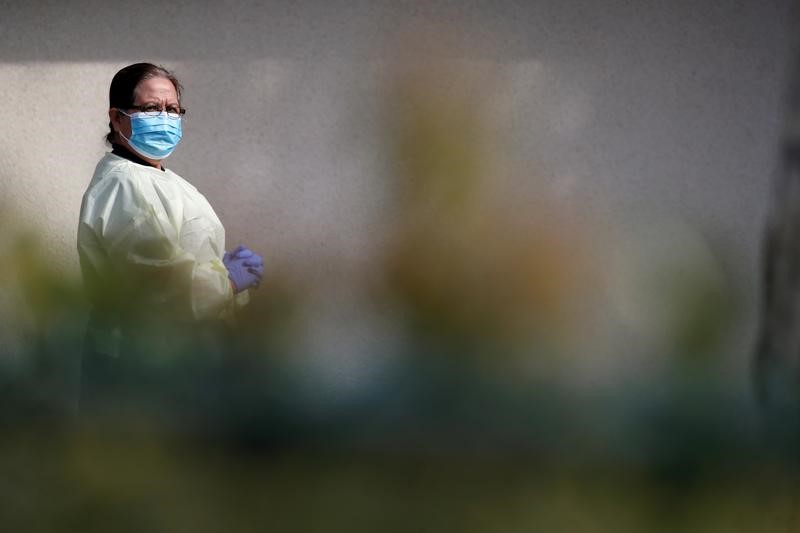By Anna Mehler Paperny and Kelsey Johnson
TORONTO (Reuters) - Canadian indigenous communities, already facing poor healthcare options, are closing their own lands' borders to limit coronavirus exposure as Ottawa dispatches funds and tents to house and isolate sick patients in the country’s chilly north.
The communities are considered at heightened risk in the coronavirus outbreak because of difficult living conditions. The country's 1.4 million indigenous people have higher levels of poverty and a lower life expectancy than other Canadians.
Canada has reported 772 coronavirus cases and nine deaths.
"We've closed the community border to outsiders. It means that only essential travelers, emergency personnel, are allowed in and out," Chief David Monias of the Pimicikamak Cree Nation in northern Manitoba told Reuters.
He said other First Nations, including Manitoba's Sayisi-Dene, had done the same.
"Many communities are closing their borders, using their isolation as a strength. Everybody’s scared. The threat is very real."
In British Columbia's Haida Gwaii, formerly known as the Queen Charlotte Islands, the Council of the Haida Nation said it was discouraging all non-resident travel to the islands "for the time being."
Indigenous nations maintain rights over the land occupied by their communities, allowing them to control who enters under certain treaties, but it is not universal.
For years, indigenous communities have complained about poor health treatments on remote reserves, which are often hundreds of miles from top-tier or specialized medical services in major cities.
Canada has said it would offer indigenous communities assistance, including personal protective equipment and additional nursing personnel.
A C$305 million ($210 million) fund announced this week is aimed at helping the communities deal with COVID-19, the respiratory disease caused by the coronavirus. Ottawa is also sending remote communities "temporary portable structures" to facilitate disease screening in places with housing shortages.
"We recognize that indigenous Canadians are faced with greater health vulnerabilities ... than most Canadians at the best of times," Prime Minister Justin Trudeau told reporters on Thursday outside his house, where he is in self-isolation after his wife tested positive for the coronavirus.
"We're asking for basic supplies like hand sanitizers to be made available to our communities," said Alvin Fiddler, grand chief of the Nishnawbe Aski Nation in Ontario.
Fiddler represents 49 communities, 18 of which have boil- water advisories, which means they lack clean drinking water at a time when governments are emphasizing the need for people to wash their hands regularly. Many of the communities are also overcrowded and lack adequate housing.
"Saying 'Wash your hands thoroughly and self-isolate' is completely disconnected from remote First Nations that don’t have access to running water, and the housing crisis means they can't self-isolate," said New Democratic Party legislator Niki Ashton, who represents rural Manitoba.

